A Federal Firearms License (FFL) can be a very complicated license to get. Not only are you dealing with Federal bureaucracy, but you have to pass extensive background checks as well a personal one-on-one examination with an ATF agent in order to personally satisfy them that you are familiar with gun laws, Federal, state, and local regulations, are zoned properly, and are actually going to engage in business.
Getting an FFL isn’t just as simple as filling out a form, sending a check, and waiting a few weeks. It is a very involved process fraught with difficulty and annoyances that pop up along the way. That’s why we’ve prepared this handy guide to help you understand some aspects of what FFLs are, how to get an FFL, and what it means to have an FFL, along with related issues.
Federal Firearms License (FFL)
Learn everything you need to know to be successful at FFL today.
Q: arrowWhat is a Federal Firearms License (FFL)?
Simply put, an FFL license is a Federal Firearms License. If you want to know what FFL means, it’s right there in the name – Federal Firearms License.
An FFL is a license that permits various manufacturing, collecting, and retail activities for guns, ammo, explosives, and NFA items like silencers and machine guns. There are a lot of different types of FFLs and not all can be used for retail operations. Check out our extensive explanation of FFL license types for more info.
An FFL is required to commercially sell firearms to the general public, as all new guns must be sold through an FFL. Many states prohibit private party gun sales, too, and FFLs have to handle background checks on those gun sales as well.
Sample FFL License
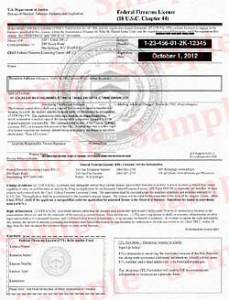

Brandon Maddox,
CEO FFL123
Q: arrowHow can I get my FFL?
If you want to know how to get an FFL, you need to know that it is very simple on paper, and very complex in real life. So much so, that not only did we write a more detailed page about it, but we operate a business solely dedicated to helping guide you through the process!
Broadly speaking though, to get your FFL you have to do the following:
- Fill out the application with your name and business information.
- Provide identifying information to the ATF.
- Get all required state and local business licenses and permits. (You may have to wait until you actually get your FFL to get some of them.)
- Get a suitable business location zoned for the type of business you plan to operate.
- Successfully pass an ATF examination that demonstrates you understand relevant laws and rules, and have a suitable location to conduct your chosen business in.
Like we said, it sounds really simple. However, the entire process is quite complicated and takes many months to complete. Our online FFL license guides can help you navigate this complex application and get you the FFL you deserve!

Brandon Maddox,
CEO FFL123
Q: arrowHow do I check an FFL License?
To check an FFL license and make sure it is valid and the correct type for the transaction you are trying to conduct, simply use the ATF’s FFL eZCheck system and follow the instructions. Note this will not validate 03 and 06 FFL’s by design. This should not be seen as a reason to refuse an 03 FFL in a situation where that FFL appropriate for use.
To check an FFL license and make sure it is valid and the correct type for the transaction you are trying to conduct, simply use the ATF’s FFL eZ Check system and follow the instructions. Note this will not validate 03 and 06 FFLs. This should not be seen as a reason to refuse an 03 FFL in a situation where that FFL type is appropriate for use.

Brandon Maddox,
CEO FFL123
Q: arrowWhat is an FFL Dealer?
An FFL dealer is anyone who holds a Federal Firearms License that permits commercial sales. Some FFLs are only for manufacturing or collecting, and do not permit retail sales. Typically, an FFL dealer has a storefront or operates part time out of their home office or other location. In addition to sales, they often facilitate the legal process of purchasing a firearm from someone or somewhere else by completing the transfer process for the new buyer.

Brandon Maddox,
CEO FFL123
Q: arrowHow do I Locate an FFL dealer?
There are a couple ways to locate an FFL dealer. The ATF has a process that lets you download a complete list of FFLs for a given state. But, as you might expect from a list compiled by the government, it’s not very user-friendly.
You can also search online in your given area, which will get you most FFLs around you. Or you can use an interactive database like the ones from GunBroker or other retailers, which are probably the most efficient (and up-to-date) ways to locate an FFL dealer.

Brandon Maddox,
CEO FFL123
Q: arrowWhat is an FFL number?
An FFL number is a very important tool for making sure you are dealing with a legitimate FFL. Each FFL number is designed to tell you information about where the FFL was issued, what type of FFL license it is, and, of course, if it is valid.
The ATF maintains an FFL lookup tool that lets you quickly check the validity of all FFLs except for 03 Curio and Relic FFLs.
To read more read this article all about ffl number.

Brandon Maddox,
CEO FFL123
Q: arrowHow do you purchase a gun with an FFL?
There are two ways to approach this question. All newly produced, commercially sold firearms must be transferred through an FFL. Some states require all gun sales be handled by an FFL. Craft-made firearms for personal use and not-for-resale do not require an FFL to be involved.
Newly made guns or states with so-called “universal background check laws” to buy a gun with an FFL means you are going to an FFL dealer and purchasing (or transferring) a gun.
In either case, you’ll fill out an ATF Form 4473, any required state forms, and wait for the ATF and any state background checks to clear. In most places and cases this is almost instantaneous. Some states may impose waiting periods for some or all types of guns. Private transfers usually require paying a fee to the dealer. Some states may have a fee for running their own background checks.
To sum it up: walk in, choose your gun, lay your money down, and do the paperwork.
The other scenario is if you are an FFL holder and wish to purchase a gun for your own private collection. This is even easier.
Buy the gun from a distributor, wholesaler, retailer, etc. Log it into your Bound Book, then simply mark it as transferred to you in the disposal section. That’s it. No Form 4473, no background check, no nothing. Log it in, log it out. Nice, huh?
That’s one of the most popular perks of having an FFL, which is really pretty nice considering you can get guns for yourself at wholesale prices, and maybe even access guns that are restricted or banned in your state!
Remember, though, that using any type of FFL other than an 03 for the sole purpose of adding guns to your personal collection is strictly forbidden.

Brandon Maddox,
CEO FFL123
Q: arrowWhat is the history of the FFL?
First conceived in 1938, the Federal Firearms Act required gun dealers, manufacturers, and importers to have a Federal license to conduct business. This was largely an effort to control who could sell guns, as opposed to who could buy guns.
The Gun Control Act of 1968 created the FFL as we know it today, along with the background check form 4473. This was the first real Federal attempt to not only control who could sell guns, but also who could buy guns.
The Brady Act of 1993 created the instant background check system we are familiar with today.
Today, the FFL is largely unchanged from the 1968 idea, although somewhat refined for the modern age and modern technology.

Brandon Maddox,
CEO FFL123
Q: arrowWhat are the types of FFL?
There are a number of different types of FFLs for different types of business and collecting activities. Some are pretty well known, and some are pretty obscure. Here is the list of every type of FFL.
- 01 FFL: This FFL is a generic retail license and allows the sale of non-NFA firearms and gunsmithing activities. It does not permit manufacturing and must be paired with a Class 03 SOT to deal in NFA items.
- 02 FFL: This FFL is a special type just for pawnbrokers, but otherwise it is functionally identical to an 01 FFL.
- 03 FFL: This FFL is for collectors of curio and relic firearms. Broadly speaking, these are guns at least 50 years old or older and in their original condition, or newer guns classified as curios and relics by the ATF.
- 05 FFL: This FFL is only for the manufacture of non armor piercing or NFA ammo and reloading components like powder and primer.
- 06 FFL: This FFL only allows the manufacturing of fully loaded ammo that is not armor piercing or subject to the NFA.
- 07 FFL: Perhaps the most versatile FFL on the list, the 07 FFL allows for manufacturing non-NFA guns and ammunition. When paired with a Class 02 SOT, it allows for the manufacturing and dealing of NFA guns and ammo as well. New FFL holders are strongly advised to consider this pairing for maximum potential revenue.
- 08 FFL: This FFL is for importing non-NFA guns and ammo. When paired with a Class 01 SOT, this FFL type may also import NFA arms and ammo.
- 09 FFL: This FFL is for dealing in destructive devices and explosive ammo. 09 FFL holders also need a Class 02 SOT to be in business. They may also need additional Federal explosive licenses. This is a pretty esoteric type of FFL that largely serves law enforcement and similar markets.
- 10 FFL: Just like the 09 FFL, the type 10 FFL requires a Class 02 SOT. The type 10 FFL is for manufacturing destructive devices and may also require Federal explosive licenses.
- 11 FFL: This FFL is for importing and dealing in various types of explosive ammo, armor piercing ammo, and similar devices. It requires a Class 01 SOT, and may also require Federal explosive licenses depending on the nature of your work.
As you can see, there is an FFL for pretty much every conceivable situation of collecting, selling, importing, or manufacturing. FFLs are referred to by “type” and that SOT’s are referred to by “class.” So you might be a Type 07 FFL with a Class 02 SOT.
Confused about what FFL or what FFL and SOT combo is right for your business plans? FFL123 is here to guide you through the entire process and make sure you get the FFL or FFL and SOT you want and deserve!
To know more read this article types of Federal Firearm licenses.

Brandon Maddox,
CEO FFL123
Q: arrowWhat are SOT classes?
An SOT, or Special Occupational Taxpayer, is an FFL who pays an additional tax for the privilege of manufacturing or importing various classes of NFA devices.
There are three SOT classes, which must be paired with an FFL. They are as follows:
- 01 SOT: an importer of NFA devices. This must be paired with an 08 or 11 FFL. These are FFLs for importing firearms other than destructive devices, and importing destructive devices respectively.
- 02 SOT: for manufacturing NFA devices. This must be paired with an 07 or 10 FFL. These are FFLs for manufacturing firearms other than destructive devices, and the manufacture of destructive devices.
- 03 SOT: for retailing NFA devices. This must be paired with an 01 or 02 FFL, which is a general retailer of firearms, or a pawnbroker.
SOT licenses must be paired with the logically correct FFL as described above. That means if you are an 07 FFL, you can’t get say an 01 SOT for importing.
Many FFL holders choose to get an 02 or 03 SOT so they can participate in the lucrative market for NFA devices. What’s exciting, too, is that on 03 SOT can legally build and acquire post-May 1986 (or “post-86”) machine guns for any lawful business purpose, including testing, demonstration, and range rental purposes. For many Americans, it is the easiest and most profitable way to access a full-auto firearm.

Brandon Maddox,
CEO FFL123
Q: arrowWhat is the purpose of the Collectors of Curio and Relic (C&R) Firearms FFL?
The 03 FFL or Curio and Relics FFL (or C&R license) is a special type of FFL license for gun collectors. It lets you buy certain guns as an FFL holder without having to undergo background checks.
There are a lot of exceptions to this. For one thing, a C&R license can only be used on guns at least 50 years old or older in their original configuration. It can also be used on newer guns in original configuration if the ATF decides their primary value has to do with collector value.
Some NFA items are also considered C&R guns because of their age, but still have to go through the same NFA registration process as any other NFA item. Some states restrict NFA ownership to curio and relic devices, so it can be an important distinction.
Some states still require C&R holders to undergo local background checks before acquiring certain C&R guns.
In most cases and in most places, an 03 FFL is a great tool for building a gun collection without having to go through a background check every single time, and to readily acquire guns across state lines.
Of course, you cannot engage in commercial activity with an 03 FFL, it is only for personal collecting use!

Brandon Maddox,
CEO FFL123
Q: arrowWhat are the application fees for an FFL?
Because there’s such a range of FFL types, there’s a large range in fees as well. They can be anywhere from $30-$3,000 for an initial application fee, and $30-$3,000 for renewals.
Don’t worry though, most FFLs are $30-$200 to apply for and $30-$150 to renew! The high dollar FFL fees are for esoteric importers and manufacturers of NFA and military grade arms. Unless you plan on landing a government contract, you don’t have to worry about that!
To know more read this article FFL License Cost.

Brandon Maddox,
CEO FFL123
Q: arrowWhat is ITAR?
ITAR, or the International Traffic in Arms Regulations, is a cumbersome set of regulations that cover the import and export of arms, ammo, and weapons parts. Covering everything from warships to AR-15 firing pins, it is a constant thorn in the side of many small manufacturers who get lumped in with large international arms dealers when it comes to regulations.
There are a lot of exceptions baked into ITAR and subsequent interpretations that now protect various small gunsmiths and manufacturers who engage only in domestic trade. However, some 07 FFLs and gunsmiths may still find themselves needing to adhere to ITAR regulations or even pay regular fees.
Because ITAR is an extremely complex topic, there are entire industries that have sprang up to help with compliance and consulting. We cannot even begin to address all ITAR topics here that may impact certain classes of FFLs, but suffice it to say, if you are a small gunsmith or manufacturer, you really don’t have to worry about ITAR anymore. But like any monster, it is still looming there in the background.
If you have any sort of manufacturing FFL or want to get one, and are an FFL123 customer, our team of industry insider experts can help you understand if ITAR may or may not apply to you. However, you are always strongly advised to consult with a firearms attorney or ITAR expert if you think you might be impacted by ITAR.

Brandon Maddox,
CEO FFL123
Q: arrowWhat is the FFL eZ Check?
FFL eZCheck is a service offered by the ATF to quickly validate an FFL, but it will not verify 03 and 06 FFLs. These are Collectors of Curios and Relics and ammunition manufacturers.
The reason 03 and 06 FFLs are not checked is because 03’s do not engage in commercial trade and can only be used with certain types of guns, and 06’s cannot be used with guns at all under any circumstance. So in other words, don’t sell a modern gun to someone trying to use an 03 FFL or any gun to someone trying to use an 06 FFL!
FFL eZ Check is the quickest way to make sure that when somebody provides you with a copy of an FFL to send a gun to, that you are sending the gun to a legitimate FFL holder who is licensed to receive it. This safeguards all parties involved.
Using FFL eZ Check to check 03 and 06 FFLs will give an error message, even if they are valid. The ATF cautions that this should not be used as a reason to question the validity of an 03 FFL for transactions where an 03 is acceptable.
To know more read the article FFL eZ Check System.

Brandon Maddox,
CEO FFL123
Q: arrowDo I need an FFL for different locations?
A unique FFL is required for each location where you are doing business. If you have a location where you only do gunsmithing and a different location where you do retail business, you’ll need two different FFLs.
The process for getting multiple FFLs is the same as getting one. You have to apply for each location and go through all the same steps for each one. However, if you are doing more than one application at the same time, you’ll probably find both approved at the same time or very close to each other.
As long as you remember that each location you conduct business at needs an FFL, then you’ll be fine. This does not apply to doing business at gun shows, as an FFL holder is allowed to sell at gun shows without additional FFLs.
To know more read Location Specific FFL License.

Brandon Maddox,
CEO FFL123
Q: arrowWhat is the best FFL course?
FFL123 is the oldest and most successful FFL course available online. We pioneered every single aspect of the online FFL course that our competitors offer, except we do it better!
FFL123 has nearly two decades of hands-on experience helping Americans in all 50 states get their FFL and/or SOT. We employ a large team of industry insider experts who work daily to help people get their FFL, work through complex legal and regulatory hurdles, and even lobby the ATF on behalf of the NFA industry! What other online FFL programs can offer that many advantages?
In addition, FFL123 customers enjoy other unique advantages. FFL123 offers ongoing regulatory and business assistance even after you get your FFL. Plus, FFL123 members enjoy exclusive forums and access to our industry insider staff to answer their questions, no matter how long they’ve been in business.
Interested to learn more about FFL course? Check the article “Online FFL Courses“.

Brandon Maddox,
CEO FFL123
Q: arrowWhat kind of profit can I expect with an FFL?
As with any business, it can be hard to define exactly how much profit you’ll make. However, new guns carry up to a 30% markup, transfer fees for online and state-mandated private party background checks tend to range from $20-$50 per transaction, and accessories can carry markups as high as 50%-100%. Remember, every business is different, and the costs of rent, fixtures, staff time, regulatory compliance, insurance, etc. all vary and will impact your bottom line.

Brandon Maddox,
CEO FFL123
Q: arrowHow can I make money with an FFL?
Asking how to make money with an FFL is a very simple question with a very complex set of answers.
First, you have to remember there are lots of different kinds of FFLs. The 03 FFL for collectors can’t be used for commercial activity at all. All other FFLs can, but they range from simple retail licenses for non-NFA items, to importers and manufacturers of esoteric military grade explosives and everything in between.
Most people who want to make money with an FFL are usually interested in an 01 or 07 FFL, which allows for most common retail activity. An 07 FFL brings additional benefits with it, as it allows for manufacturing, which means you can enter the custom AR-style rifle market with great ease. Additionally, the 01 or 07 FFLs can be paired with an SOT to allow selling and making (depending on your FFL) NFA weapons.
The first step to making money with an FFL is to have a rock-solid business plan. No matter if you plan to run a small home-based 01 FFL, or manufacture custom ammo, you need to know your market.
Here are some common ways to make money with an FFL that apply to most FFL holders in most markets:
- Online transfers: For many home-based FFLs, this is a rich source of income that requires no upfront investment in inventory.
- Specialized accessories and ammo: While everyone has the most common guns and ammo, a shop specializing in specialty items can quickly gain a loyal and profitable following from customers who seek out the unusual or uncommon.
- Sell or manufacture NFA items: While expensive and full of regulatory hurdles, there is an enormous appetite for NFA devices from silencers to AOW’s. If you live in an NFA friendly state, this could be a good way to build a business.
- In person transfers: Many states now require private party sales be handled through an FFL. This is a great way to get people into your shop, and not only earn the fee for handling the background checks, but also to sell ammo, accessories or even more guns!
- Stock a good variety of used guns: Used guns carry a good profit margin and many people come into shops looking for older, vintage guns, or just a bargain off full retail.
There are lots of other ways to make money with an FFL, too, but these are the most common and approachable ones, beyond the obvious of maintaining an inventory of popular guns.

Brandon Maddox,
CEO FFL123
Q: arrowWhat is a Federal Firearms License?
A Federal Firearms License or FFL is a license issued by the ATF to engage in various manufacturing, retail or collecting activities involving guns, ammo or military devices. You can learn more about various types of FFL’s by clicking here. The most common Federal Firearms Licenses include the 01 FFL for general retail, the 03 FFL for Curio and Relics collectors, and the the 07 FFL for manufacturing guns.

Brandon Maddox,
CEO FFL123
Q: arrowWhat Are Federal Firearms Licensees?
A Federal Firearms Licensee is the person or company who holds a current, valid FFL. To learn more about checking the status of a current FFL Licensee, you can use FFL eZ Check.
Federal Firearms Licensees can only conduct the kinds of activities allowed by their particular FFL. Some FFLs can be combined with a Special Occupational Taxpayer or SOT status that allows the manufacture or sale of various forms of highly regulated NFA items.

Brandon Maddox,
CEO FFL123
Q: arrowWhat is the Definition of an FFL?
Quite literally, an FFL is a Federal Firearms License.
An FFL is a license to make, sell, import, export or collect various types of guns, ammo and military weapons. Anything involving all types of firearms, or weapons that use explosives are covered by various types of FFL’s. Some are very complex and have limited use, while others are extremely common.
An FFL is required to commercially sell firearms to the general public, as all new guns must be sold through an FFL. Many states prohibit private party gun sales too, and FFL’s have to handle background checks on those gun sales too.

Brandon Maddox,
CEO FFL123




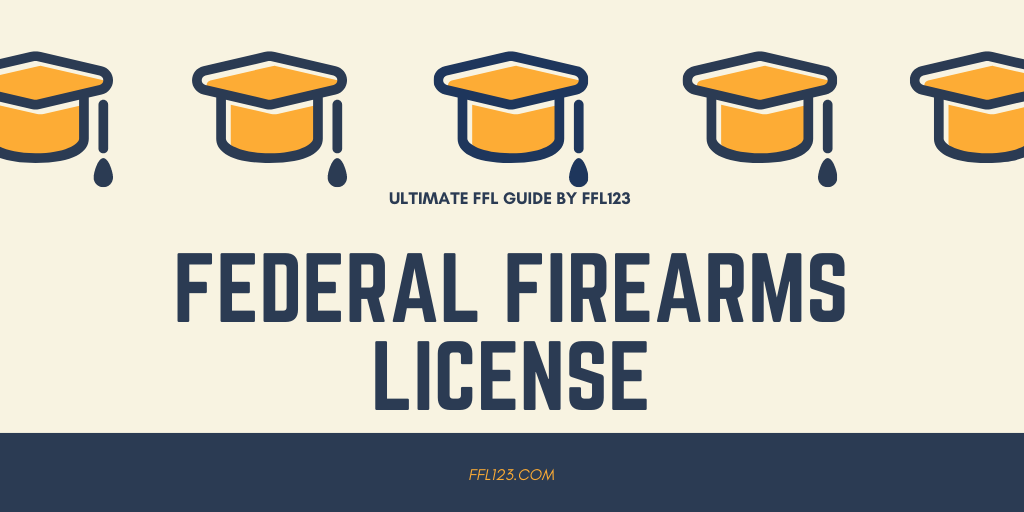
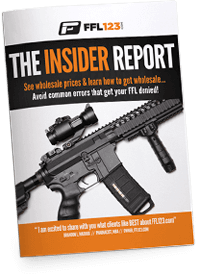
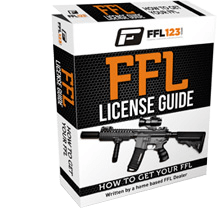
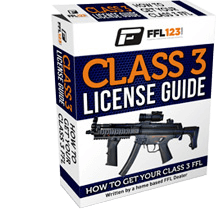
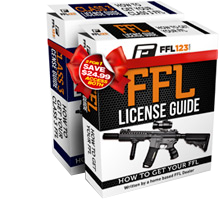



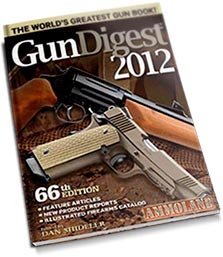








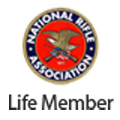



Hi, does your program ever touch on how to buy products directly from forges or machine shops to create your own line of firearms? Thanks,
Scott